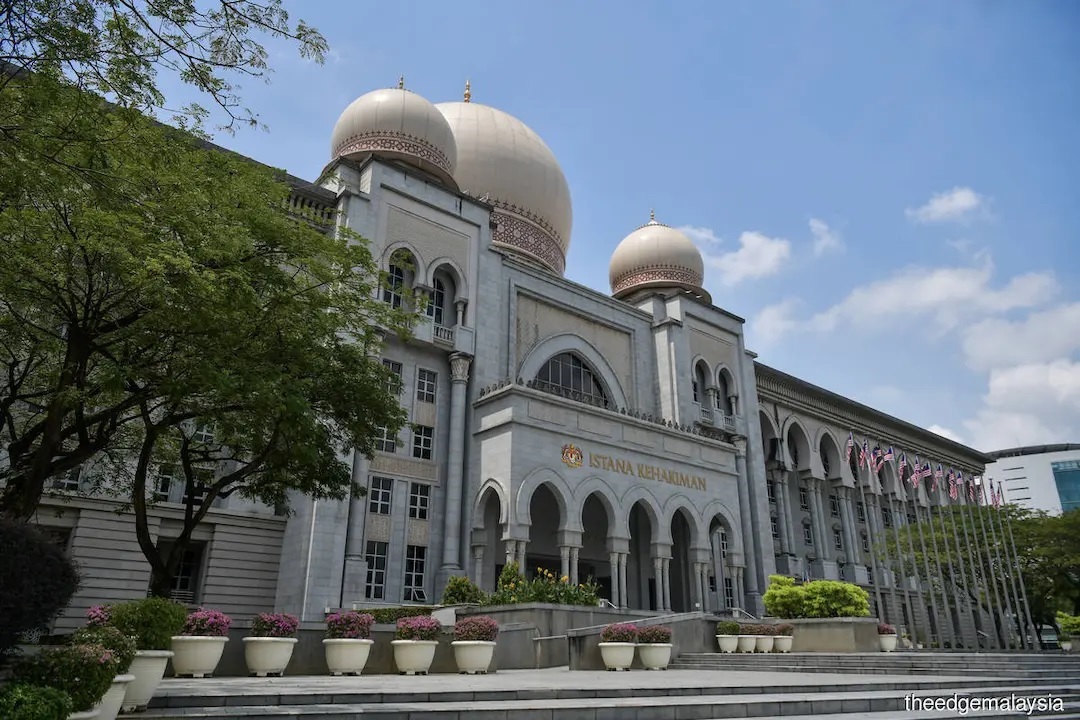
- Liquidator Dr Jim Lai Chee Chuen, when met at the sidelines of the decision with counsel Datuk Dr Cyrus Das, Ira Biswas and Alexie Ng Ying Ching, said the 26 questions of law posed by the company are constitutionally important and should have been heard.
PUTRAJAYA (Nov 13): Semantan Estate (1952) Sdn Bhd may consider filing for a review of Thursday’s Federal Court decision, which rejected its appeal for the physical recovery of the ‘Duta Enclave’ land and the transfer of the registration of the title to the company.
Liquidator Dr Jim Lai Chee Chuen, when met at the sidelines of the decision with counsel Datuk Dr Cyrus Das, Ira Biswas and Alexie Ng Ying Ching, said the 26 questions of law posed by the company are constitutionally important and should have been heard.
“We are looking further into it as this affects our legal rights. We will take instructions on this further (and may consider a review),” he said.
Under Rule 137 of the Federal Court Rules 1995, the apex court can review its own decisions, under rare and exceptional cases, to prevent injustice or abuse of the legal process.
Semantan Estate, which had undergone voluntary liquidation, was founded by the Eng Lian Group and Ng Chin Siu & Sons Rubber Estates Sdn Bhd—the vehicles of two prominent land-owning families.
Eng Lian Group is best known for developing Bangsar in Kuala Lumpur since the 1970s, including its main commercial area, Bangsar Village. Ng Chin Siu & Sons Rubber Estates has been less active in recent years, though it once owned much of Desa Sri Hartamas and Mont’Kiara.
Earlier, a three-member Federal Court bench led by outgoing Chief Judge of Malaya Tan Sri Hasnah Mohamed Hashim unanimously rejected Semantan Estate’s appeal, saying the 26 legal questions did not meet the threshold for hearing, ending the case.
As a result, the Court of Appeal’s June 24 decision stands: the federal government keeps the land and its title, and the High Court will determine Semantan Estate’s compensation based on the 1956 market rate.
In addition to compensation, Semantan Estate is entitled to mesne profits—money paid for the wrongful use of their property. It represents the rent or profits the unauthorised occupant would have earned, paid to compensate for the illegal occupation.
The hearing of mesne profits is being heard before another High Court, with submissions scheduled for hearing on Dec 11.
In 2009, High Court Judicial Commissioner Zura Yahya ruled that the government had illegally occupied Semantan Estate’s land since December 1956 and that the company was entitled to mesne profits. This decision was confirmed by the Court of Appeal and the Federal Court in 2012. The government failed to review the Federal Court’s 2012 ruling in 2019.
After that, Semantan Estate filed three cases: a mandamus order to compel the physical return of the land and structures on it, to have the 38 land titles re-registered to the company, and to claim mesne profits.
The company failed to get the mandamus order in 2021, but in August 2024, the High Court allowed the land titles to be re-registered to Semantan Estate within three months, though the government obtained a stay.
This led to appeals: Semantan Estate appealed against the 2021 High Court decision, and the government appealed against the August 2024 decision. The Court of Appeal ruled in favour of the government, which brought the case to the Federal Court, resulting in Thursday’s decision.
As Penang girds itself towards the last lap of its Penang2030 vision, check out how the residential segment is keeping pace in EdgeProp’s special report: PENANG Investing Towards 2030.






